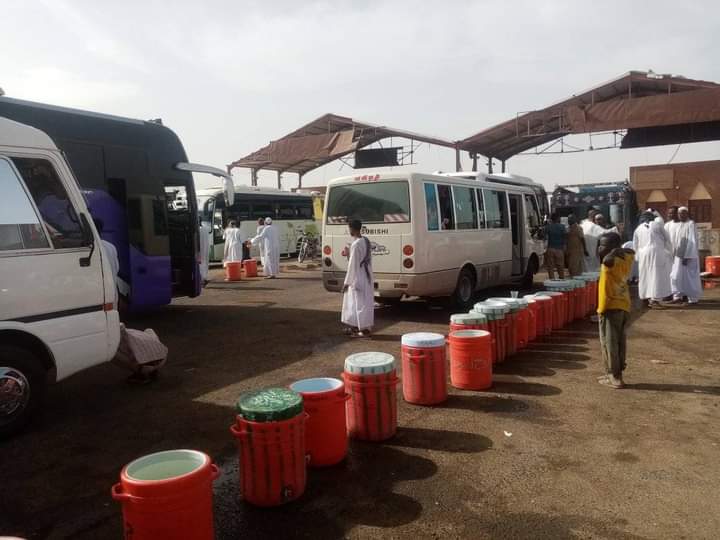
The Displaced of Khartoum... They Escaped the Shelling and Died in Despair
Khartoum - Moatinoon
The war in Khartoum between the Sudanese army and the Rapid Support Forces continues to wreak havoc in residential neighborhoods, entering its eightieth day amidst widespread violations by both parties against basic human rights, committing war crimes, and violating international and humanitarian laws.
Amidst the relentless shelling and fighting, without any notable success in the agreed-upon ceasefires through the Jeddah platform under Saudi and American sponsorship, and with a lack of flow of medical and humanitarian aid, and the absence of safe passages to protect civilians, the situation remains dire. There are repeated water and electricity outages, scarcity of access to food, and limited access to safe medical facilities.
According to official statistics from the United Nations mission operating in Sudan, over two million people have fled Khartoum to other cities in Sudan.
The displaced have endured the horrors of the Khartoum war, with no safe haven in the city and no easy escape. The images of tragedy and the painful accounts of travel from Khartoum to other safe cities are varied.
In the early days of the war, people used to travel naturally from the Central Market Station (Shambat) to cities like Shendi and Atbara in northern Sudan, and cities like Medani, El-Haj Yousif, and others in central Sudan. However, the shelling later reached the Central Market area, turning the travel station into a battleground between the armed forces and the Rapid Support Forces.
The travel station moved north to the intersection of Al-Halfaya Bridge, but it quickly turned into a military zone with reciprocal attacks. The travel station then relocated to the Al-Samrab neighborhood in East Khartoum Bahri, and later to Al-Droushab in the north. Both areas transformed into military operation zones, systematically targeting the safe passages created by the displaced for their escape. Consequently, there was no safe place for the travel station throughout Khartoum.
According to medical sources in the cities of Atbara and Shendi in northern Sudan, a significant number of gunshot wound cases have reached the hospitals in both cities under extremely limited conditions. Cases of miscarriages and increased fetal distress for pregnant displaced women have also been reported.
Amidst this fear and concern, many civilians survived but faced different challenging conditions. They endured the hardship of living in ill-equipped camps where emergency committees relied on self-reliance. Rental prices for houses skyrocketed in Shendi, Atbara, and Medani. Most of the displaced were unable to find suitable shelter due to the lack of funds, forcing them to accept staying in the camps.
The displaced faced harsh conditions despite the efforts of emergency committees to alleviate them. They suffered from sudden illnesses. According to statistics from Al-Mak Nimir Hospital and the Teaching Hospital in Shendi, more than twenty deaths occurred among the displaced. Most of these deaths were attributed to conditions such as strokes, heart attacks, and other chronic diseases related to the lack of life-saving medication.
According to officials from the local emergency committee, some gunshot wound cases reached the city. Some received medical treatment and underwent surgeries, while others lost their lives due to severe bleeding.

